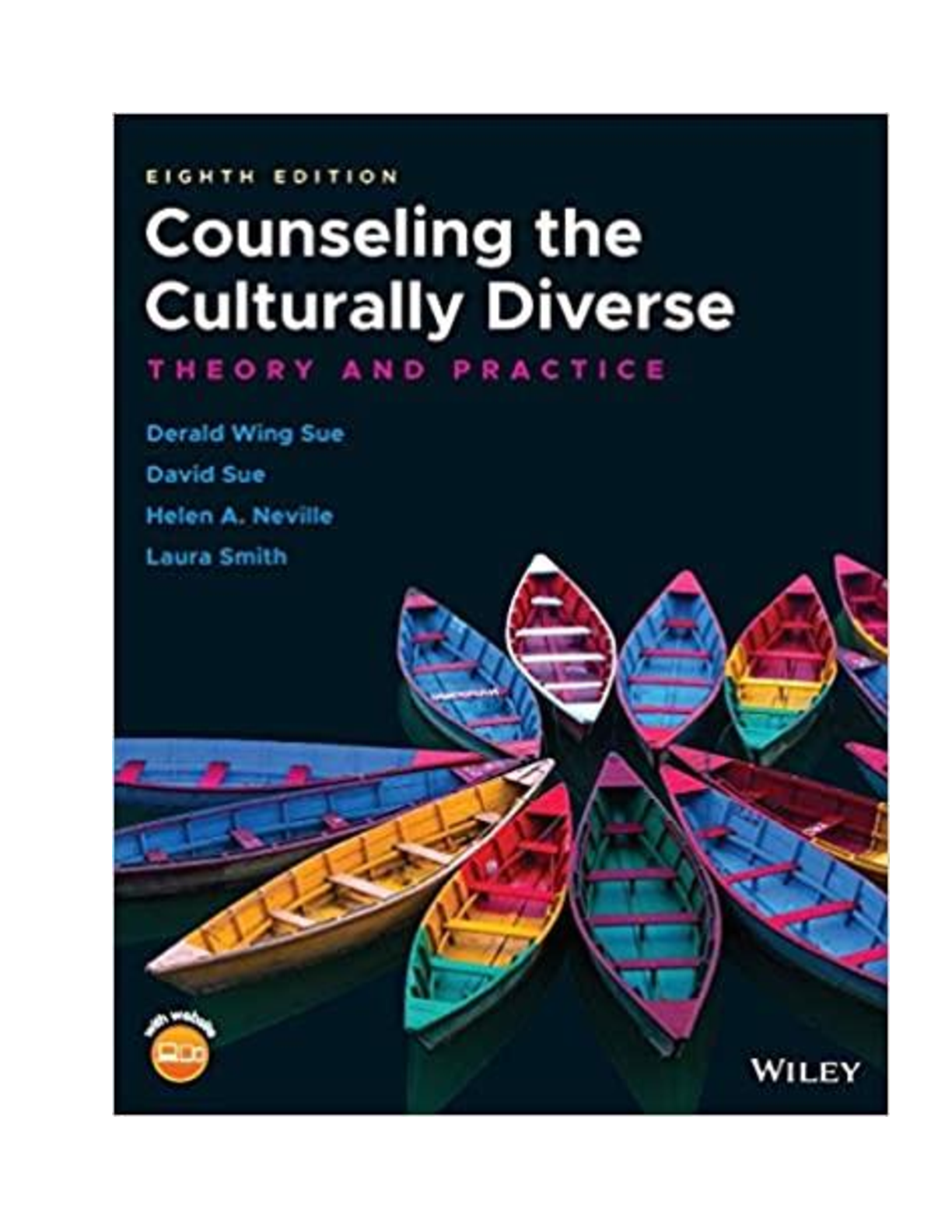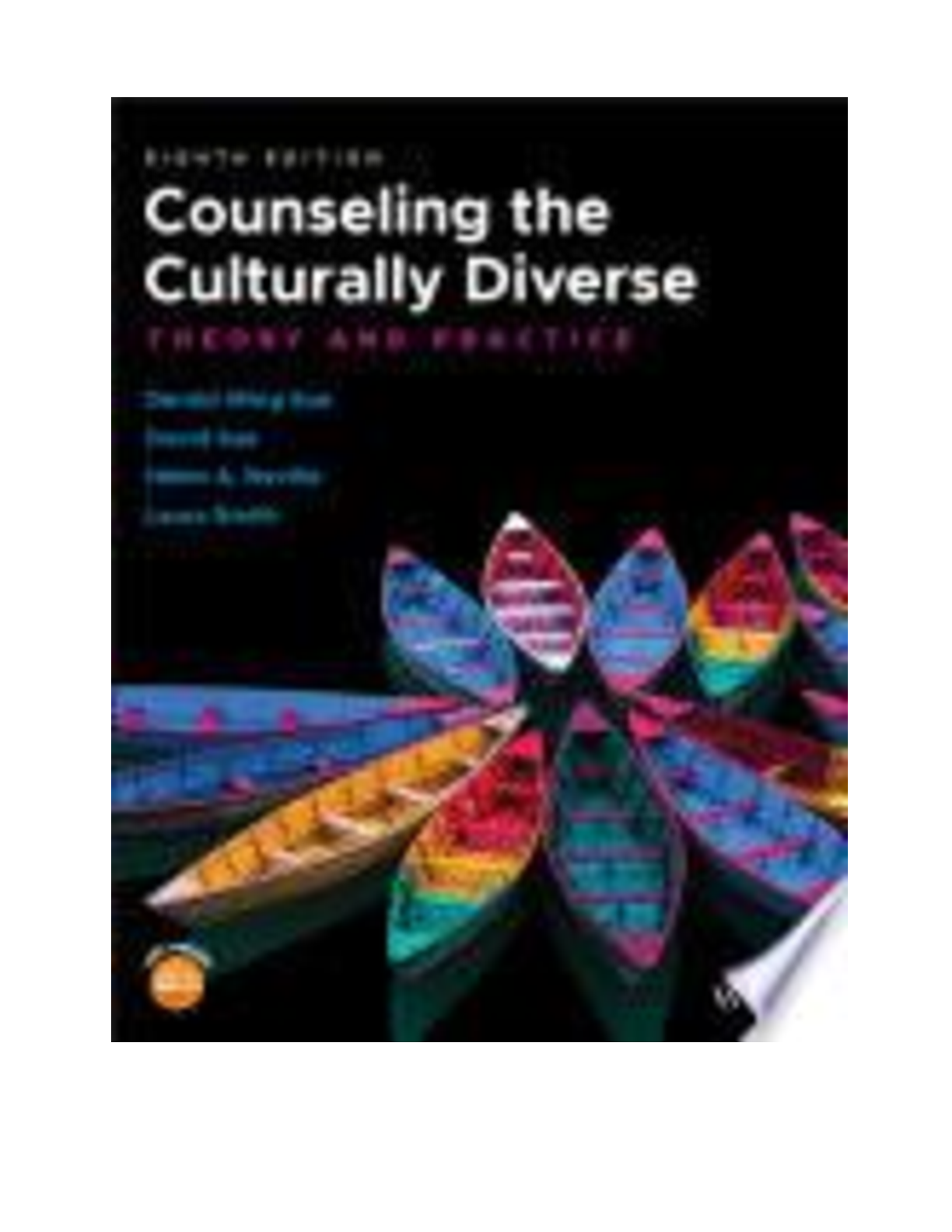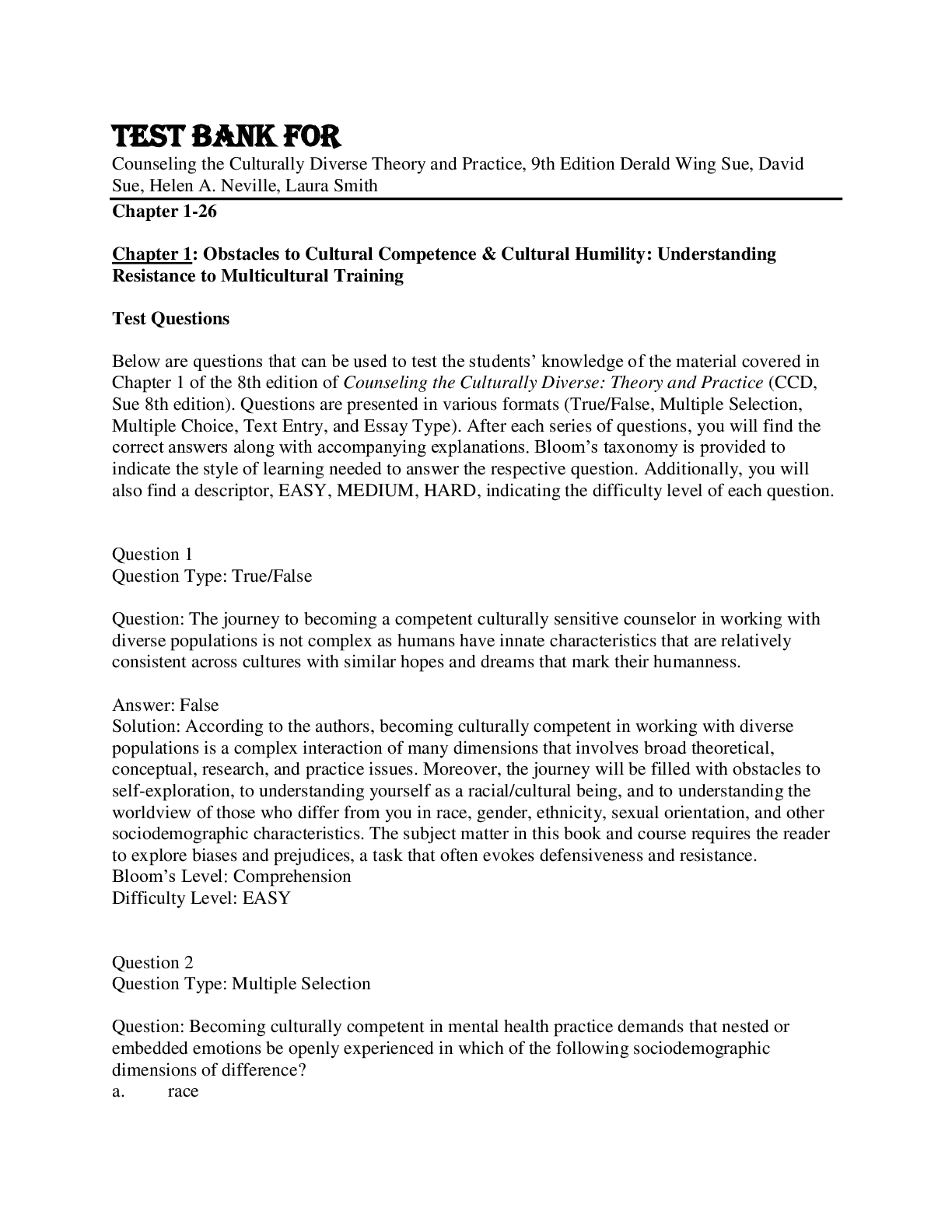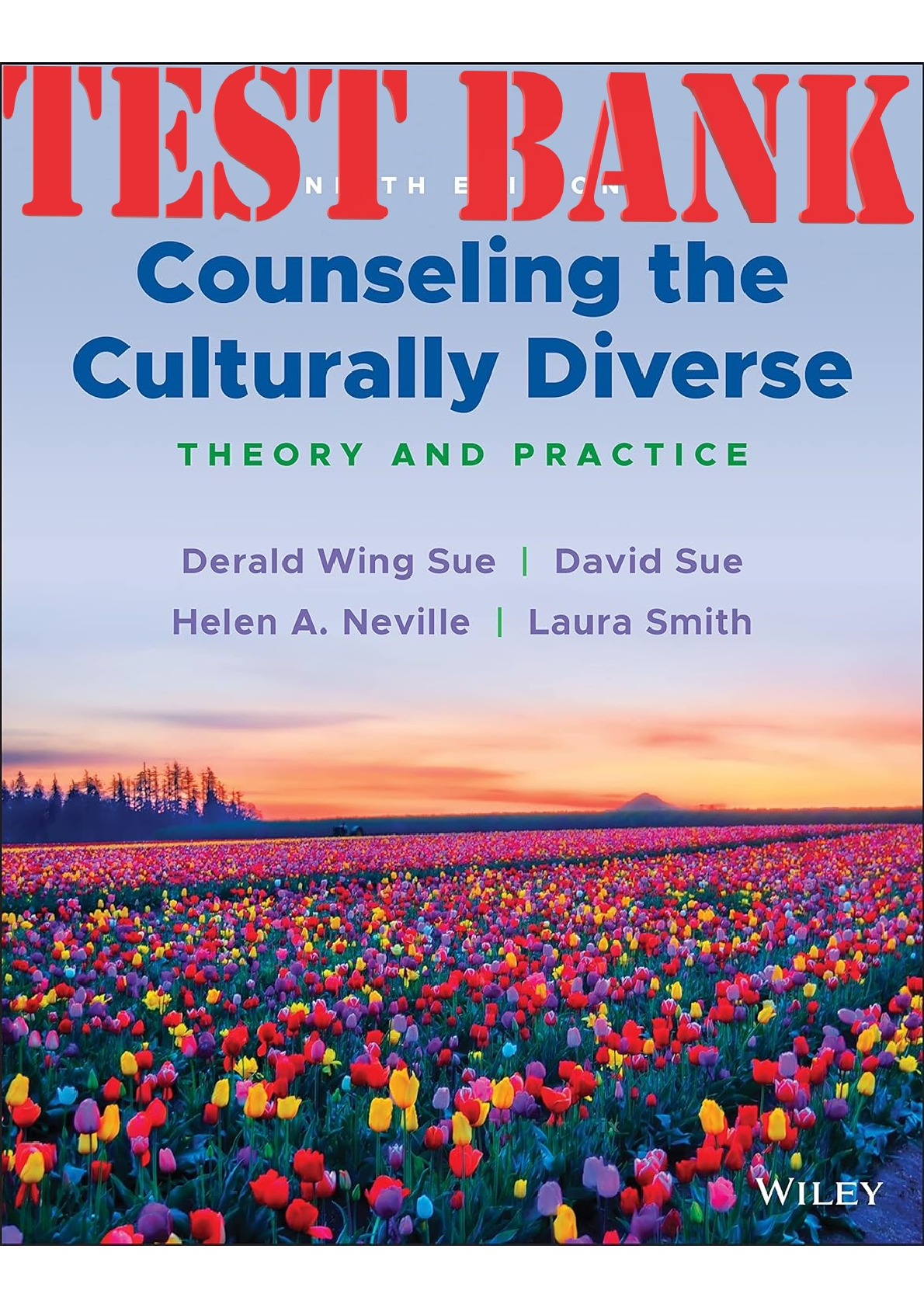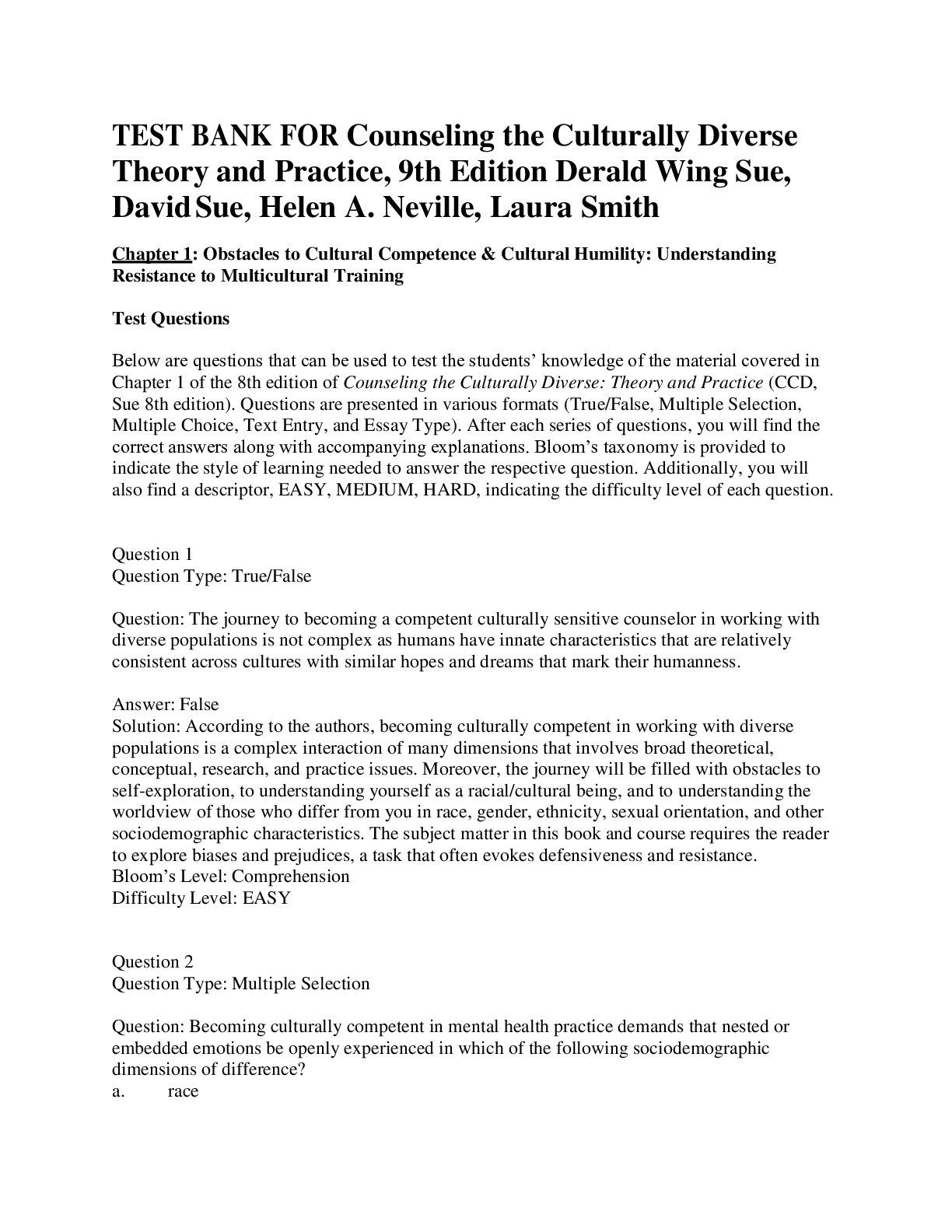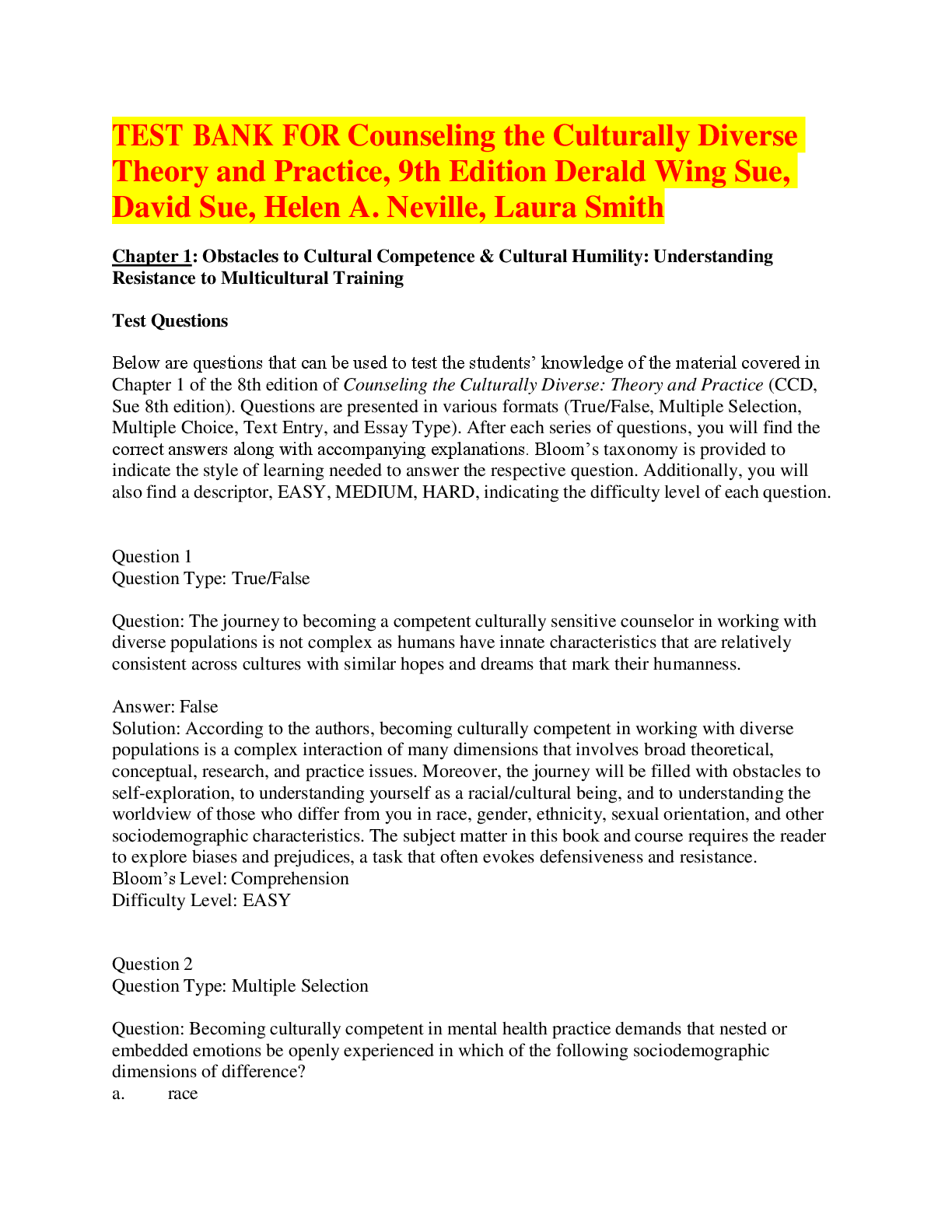Education > TEST BANKS > Test Bank For Counseling the Culturally Diverse Theory and Practice, 9th Edition by Derald Wing Sue, (All)
Test Bank For Counseling the Culturally Diverse Theory and Practice, 9th Edition by Derald Wing Sue, David Sue, Helen A. Neville, Laura Smith
Document Content and Description Below
Test Bank For Counseling the Culturally Diverse Theory and Practice, 9th Edition by Derald Wing Sue, David Sue, Helen A. Neville, Laura Smith-Below are questions that can be used to test the students�... �� knowledge of the material covered in Chapter 1 of the 8th edition of Counseling the Culturally Diverse: Theory and Practice (CCD, Sue 8th edition). Questions are presented in various formats (True/False, Multiple Selection, Multiple Choice, Text Entry, and Essay Type). After each series of questions, you will find the correct answers along with accompanying explanations. Bloom’s taxonomy is provided to indicate the style of learning needed to answer the respective question. Additionally, you will also find a descriptor, EASY, MEDIUM, HARD, indicating the difficulty level of each question. Question 1 Question Type: True/False Question: The journey to becoming a competent culturally sensitive counselor in working with diverse populations is not complex as humans have innate characteristics that are relatively consistent across cultures with similar hopes and dreams that mark their humanness. Answer: False Solution: According to the authors, becoming culturally competent in working with diverse populations is a complex interaction of many dimensions that involves broad theoretical, conceptual, research, and practice issues. Moreover, the journey will be filled with obstacles to self-exploration, to understanding yourself as a racial/cultural being, and to understanding the worldview of those who differ from you in race, gender, ethnicity, sexual orientation, and other sociodemographic characteristics. The subject matter in this book and course requires the reader to explore biases and prejudices, a task that often evokes defensiveness and resistance. Bloom’s Level: Comprehension Difficulty Level: EASY Question 2 Question Type: Multiple Selection Question: Becoming culturally competent in mental health practice demands that nested or embedded emotions be openly experienced in which of the following sociodemographic dimensions of difference? a. race b. culture c. gender d. sexual orientation e. only a and b Answer: a, b, c, d Solution: The authors point out that the journey to becoming culturally competent therapists is filled with obstacles to self-exploration, to understanding oneself as a racial/cultural being, and to understanding the worldview of those who differ from others in terms of race, gender, ethnicity, sexual orientation, and other sociodemographic dimensions. Bloom’s Level: Knowledge Difficulty Level: MEDIUM Question 3 Question Type: Text Entry Question: The three types of resistance that are often encountered by students studying diversity training are: , , . a. cognitive; emotional; behavioral b. psychological; physiological; emotional c. dissonance; isolation; invalidation d. physical; emotional; spiritual Answer: a Solution: The authors report that in work with resistance to diversity training, research reveals how it is likely to be manifested in three forms: cognitive resistance, emotional resistance, and behavioral resistance (Sue, 2015, as cited in Sue 8th edition). Bloom’s Level: Knowledge Difficulty Level: MEDIUM Question 4 Question Type: Essay Type Question: Identify at least three emotions you experienced as you read the reactions of the four students. Reflect on why you feel those emotions surfaced. Solution: Responses will vary but, according to the authors, one of the greatest concerns of instructors is the strong emotive reactions of students to the material: grief, anger, depression, and guilt in working through the content. Bloom’s Level: Synthesis Difficulty Level: HARD [Show More]
Last updated: 5 months ago
Preview 5 out of 235 pages

Loading document previews ...
Buy this document to get the full access instantly
Instant Download Access after purchase
Buy NowInstant download
We Accept:

Reviews( 0 )
$16.50
Can't find what you want? Try our AI powered Search
Document information
Connected school, study & course
About the document
Uploaded On
Feb 23, 2025
Number of pages
235
Written in
Additional information
This document has been written for:
Uploaded
Feb 23, 2025
Downloads
0
Views
37

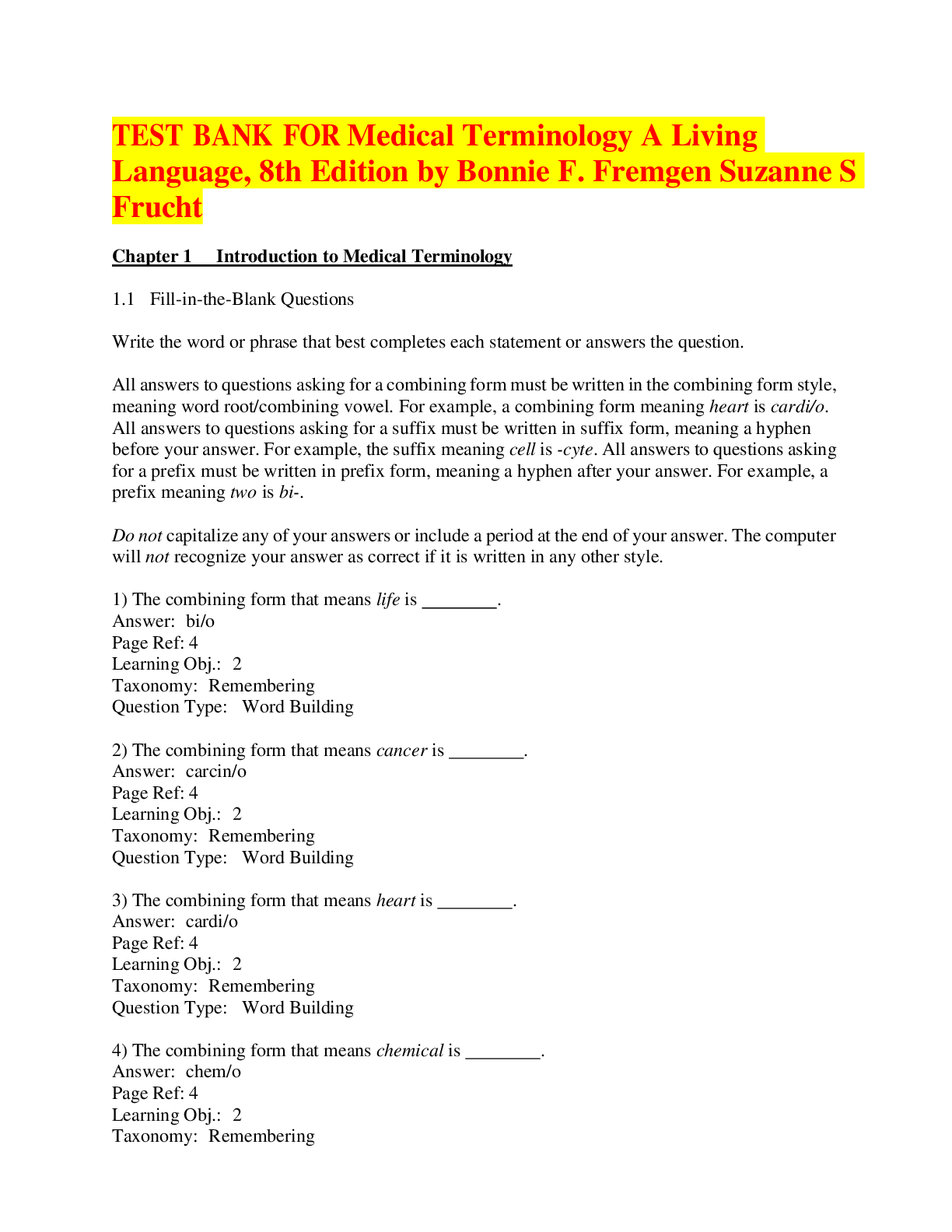
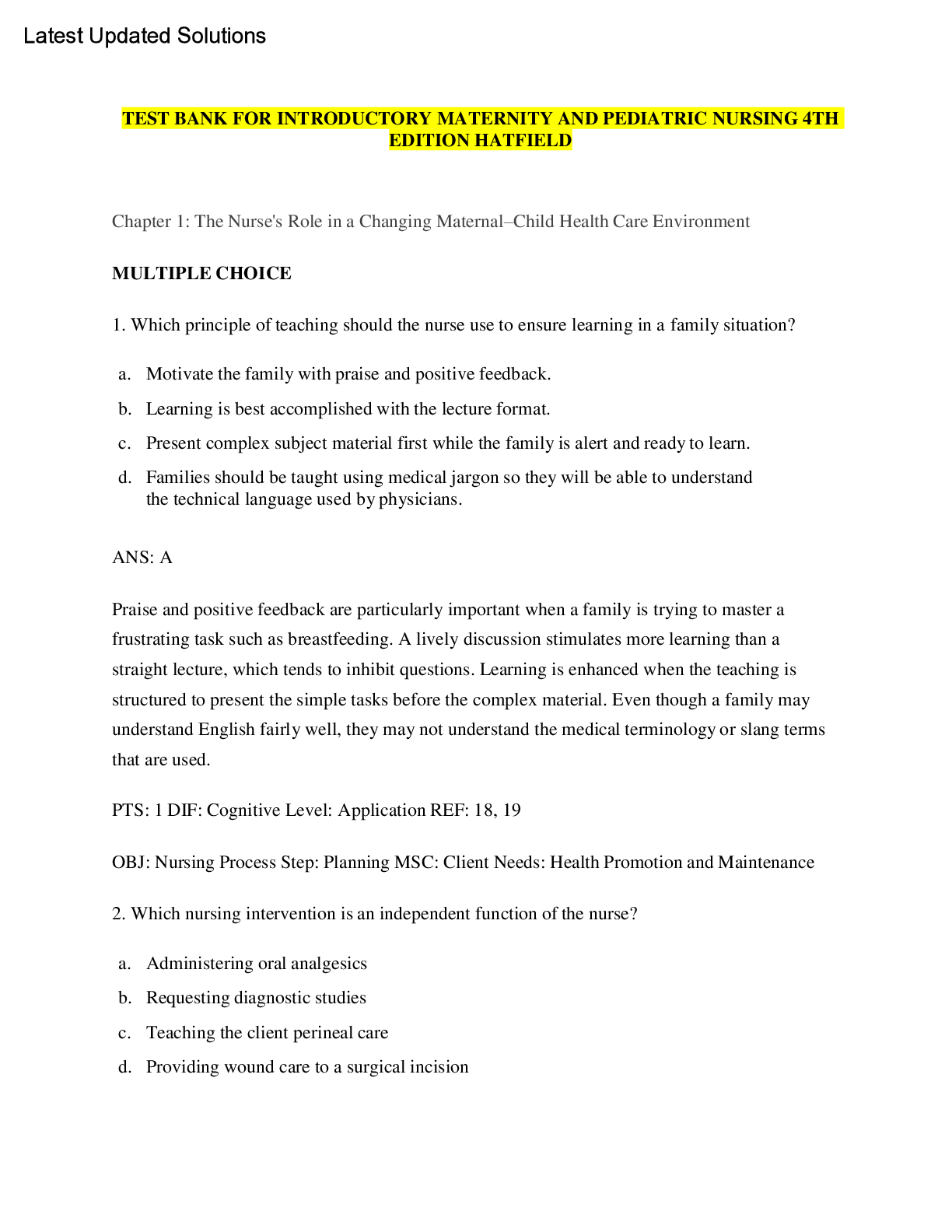
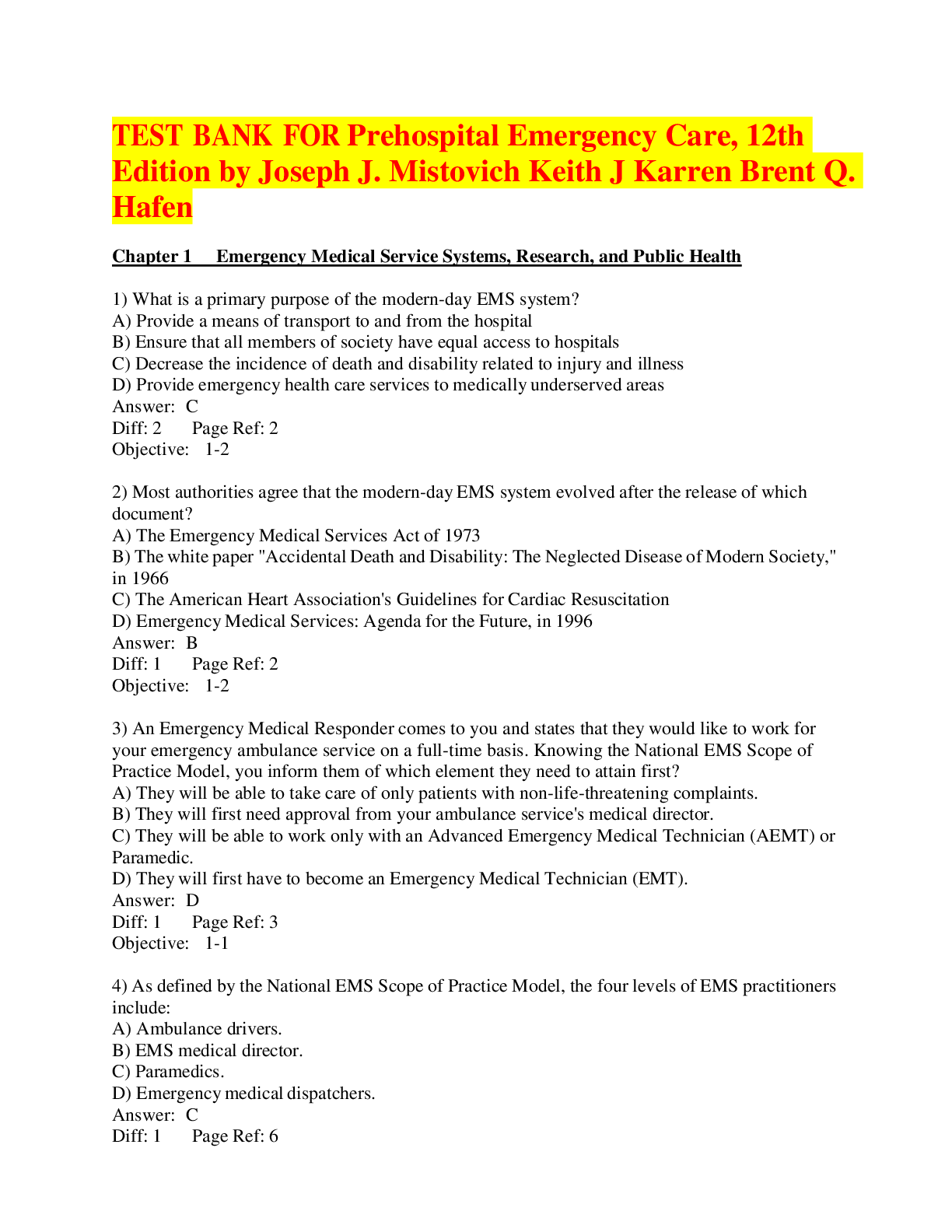


_compressed.png)
.png)
.png)

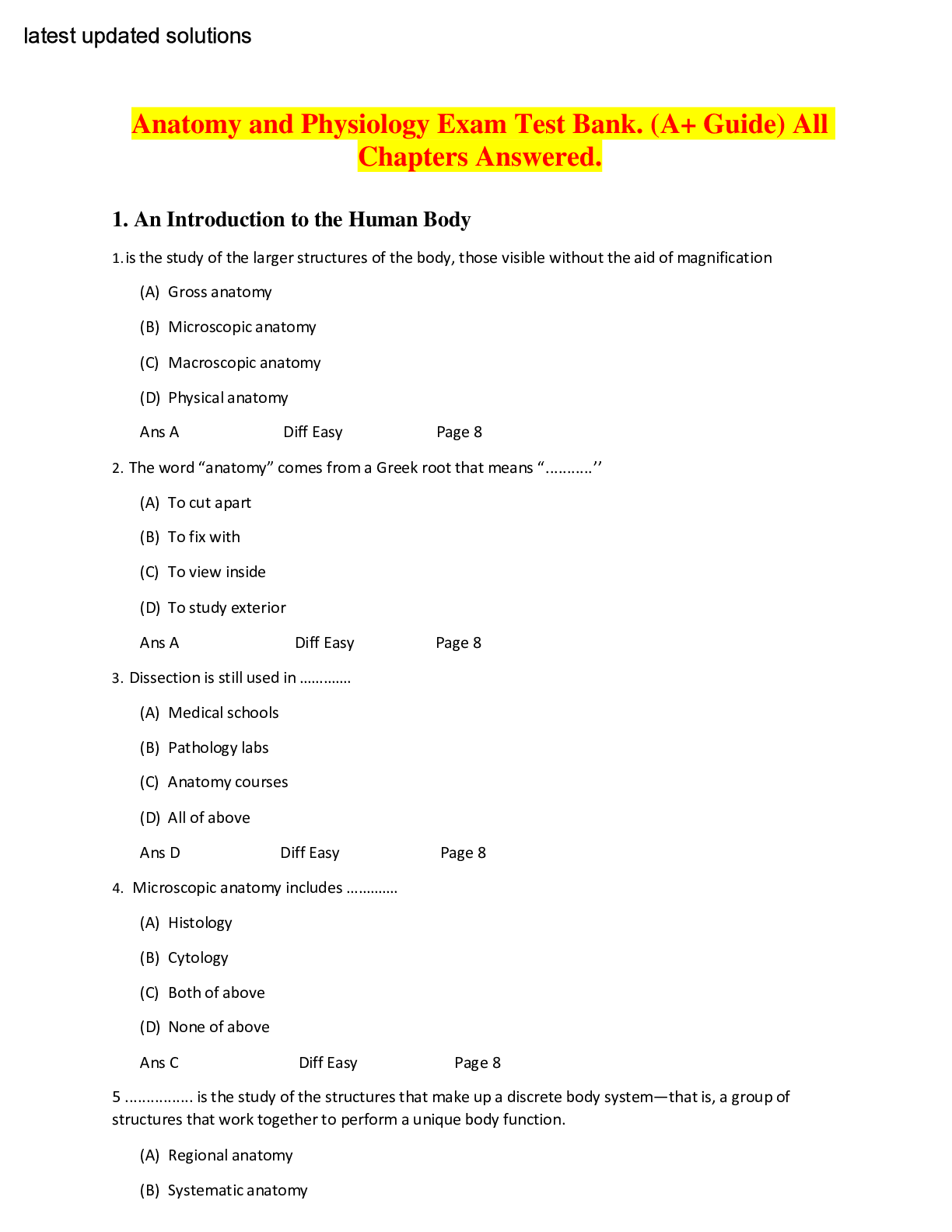
.png)
